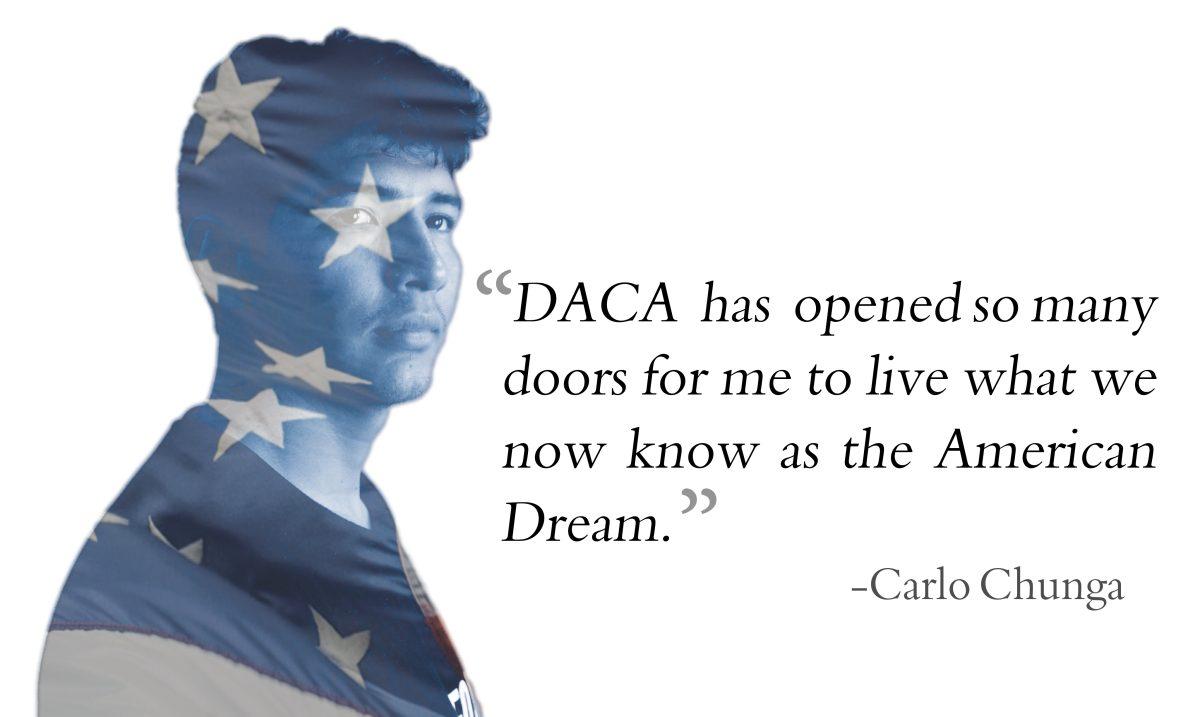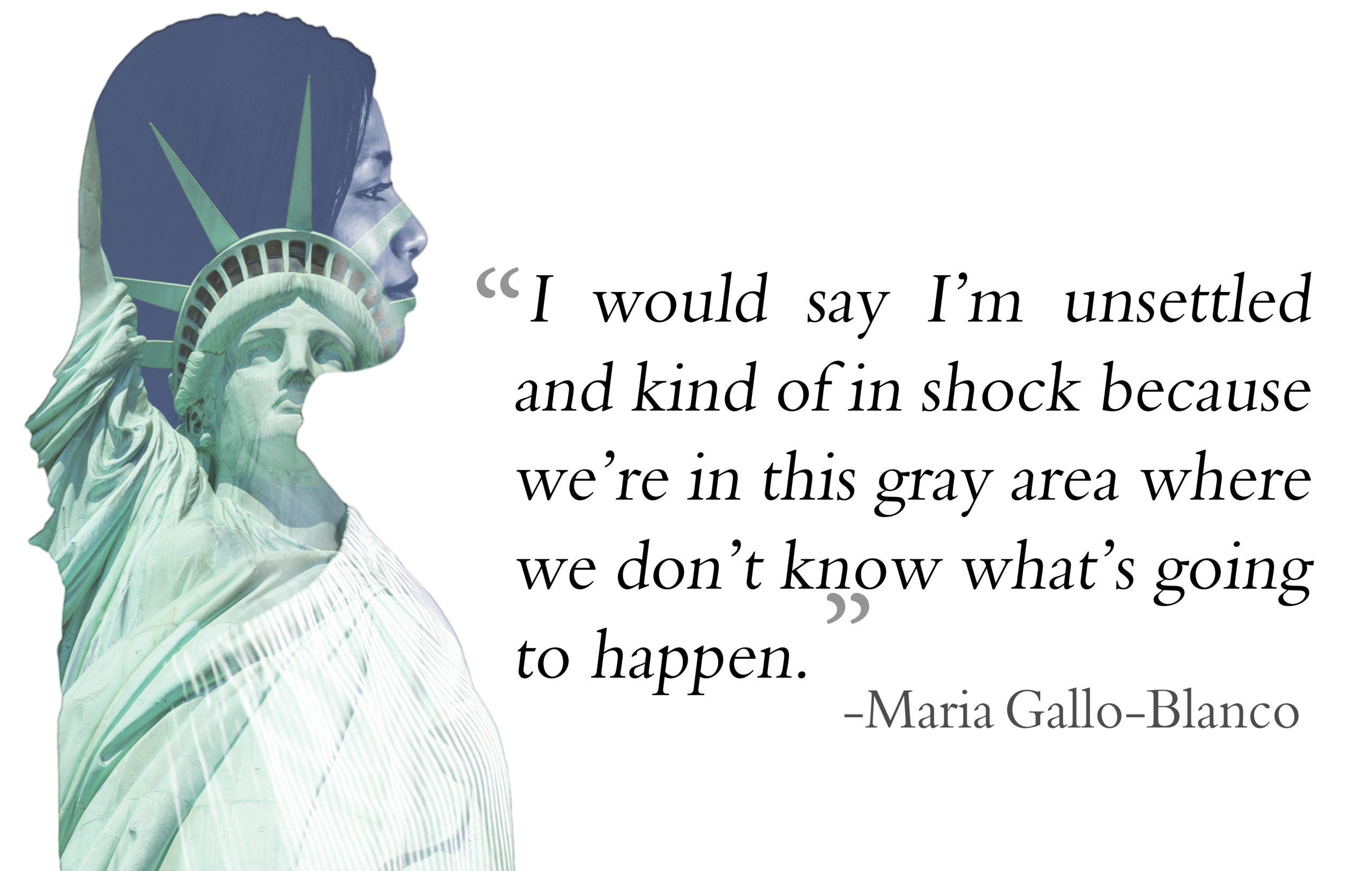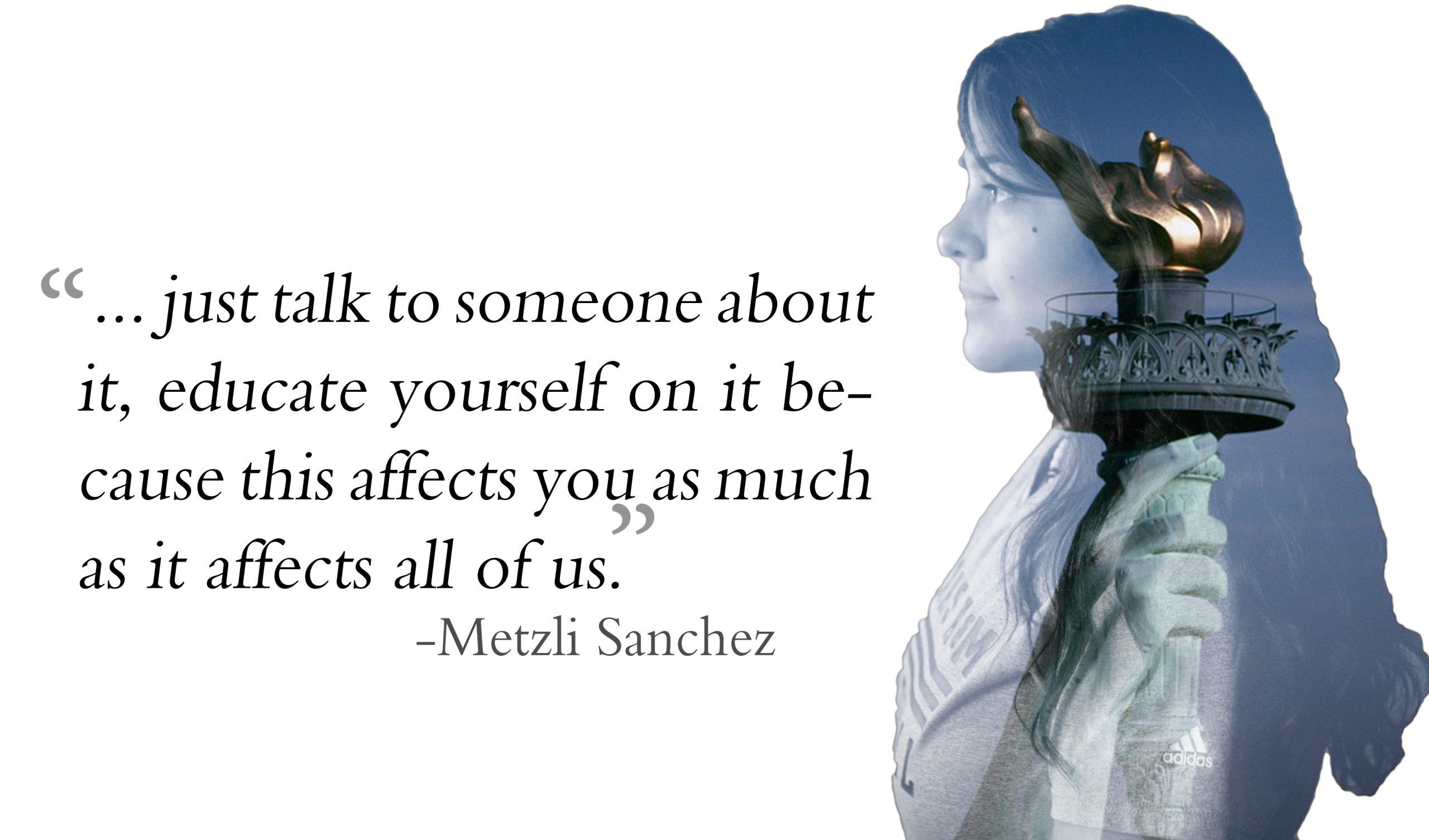Aggies pursuing American education and opportunity through a recently-rescinded immigration policy must now contend with the shadow of uncertainty looming over some 800,000 undocumented residents protected by the policy.
On Sept. 5, President Trump moved to walk-back the Deferred Action for Childhood Arrivals program put in place by former President Barack Obama in June of 2012. For those who met the requirements — including arriving in the U.S. before the age of 16, pursuing education or military service and maintaining a clean criminal record — the program offered a renewable two year period of protection from deportation and the opportunity to obtain work permits as well as other benefits like participation in the social security system.
For business management junior Maria Gallo-Blanco, who arrived in the U.S. at the age of 8, DACA opened doors previously thought to be out of reach for young, undocumented residents.
“Since I was in high school, I knew that I wasn’t born here, especially when I started applying for college and knowing that my friends were getting their driver’s licenses and stuff like that that I couldn’t get because didn’t have a social security card or a social security number,” Gallo-Blanco said.
When DACA was implemented, Gallo-Blanco said she was able to receive a social security number and begin applying for higher education and scholarships.
“DACA has given me the opportunity to not only be here at A&M but just to be in the U.S. without fearing that I might get deported out of the blue,” Gallo-Blanco said. “For me, that has meant a lot.”
Current DACA recipients will retain their protected status until their two year period expires, and President Trump has said he is in favor of congressional action that would allow them to continue living and working in the U.S. through a policy similar to DACA. However, until a deal is reached, the future remains unclear for students like Gallo-Blanco.
“I would say I’m unsettled and kind of in shock because we’re in this kind of gray area where we don’t know what’s going to happen,” Gallo-Blanco said. “I’m a junior so I’m applying for internships and stuff like that, but I don’t know if I should continue with that path because when you apply for internships they ask you ‘Are you a permanent resident?’ or ‘Can you work after the internship?’ and it’s like, ‘Well I don’t know.’”
Carlo Chunga, urban and regional planning junior and vice president of the Council for Minority Student Affairs, came to the U.S. in 2002 and said he worries that Congress’ potential inability to come to a decision may undermine the long-term goals he has worked toward.
“DACA, it literally empowered me to go to college, to pursue a higher education, to eventually get a Ph.D., to give back to society and to provide for my family who’s been through so much already – they deserve a break,” Chunga said. “DACA has opened so many doors for me to live what we now know as the American Dream.”
After a lifetime shaped by American culture and education, Gallo-Blanco said she must now confront the possibility of leaving her home and returning to a country she hasn’t known for many years.
“Even though I have family back in Mexico, it’s not the same thing,” Gallo-Blanco said. “It’s not the same culture, it’s not the same language. Nothing is the same. I’ve been learning the history of the United States. Do I know anything about the history of Mexico? Not really.”
Although University President Michael Young released a statement expressing his hope that Congress will find a solution, Chunga said undocumented students are looking for a more tangible commitment. In the wake of the DACA rescission, the Council for Minority Student Affairs released a petition outlining various steps the university could take to ensure the safety of undocumented students.
“Right now we just want to see actual policy change and we want to make it aware to President Young that students do care about what happens to the undocumented students here at Texas A&M,” Chunga said.
Economics junior Metzli Sanchez said that while she also wishes Young would have taken a stronger position, the support of friends, family, classmates and faculty are helping her stay positive through the period of uncertainty.
“I’m not scared,” Sanchez said. “I’m pretty hopeful, and I’m just taking everything day by day.”
As the eyes of the nation turn once more to Washington, Sanchez said the best way to understand how DACA’s absence will impact the Aggie family is to stay informed and avoid misconceptions.
“I love to encourage the rest of the student body who either don’t know or maybe disagree with DACA, just talk to someone about it, educate yourself on it because this affects you as much as it affects all of us,” Sanchez said.
Facing the future
September 17, 2017
0
Donate to The Battalion
$2065
$5000
Contributed
Our Goal
Your donation will support the student journalists of Texas A&M University - College Station. Your contribution will allow us to purchase equipment and cover our annual website hosting costs, in addition to paying freelance staffers for their work, travel costs for coverage and more!
More to Discover














